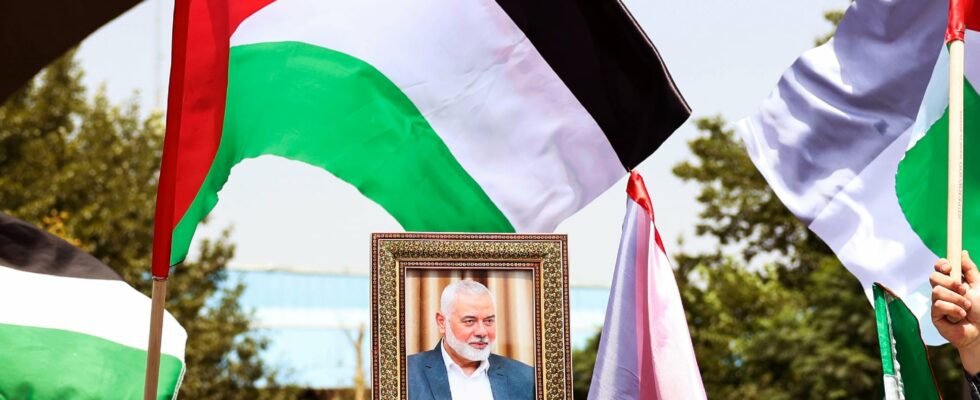Hamas leader Ismail Haniyeh is to be buried this Friday, August 2. The ceremony will take place in Qatar, where he was living in exile. Two days earlier, he was still leading the political bureau of the Islamist movement and was traveling to the Iranian capital for the presidential inauguration. His assassination – blamed on Israel – took the Arab world by surprise. As Iran and its allies prepare their response, the circumstances of the leader’s death are emerging.
In Iran, the method of assassination has been the subject of rumors and controversy. The Revolutionary Guards’ media outlet Tasnim reported that witnesses said a missile-like object hit Haniyeh’s bedroom window and exploded. The Israeli military, meanwhile, claims that the only strike carried out that night in the Middle East was the one that killed Hezbollah’s military leader Fouad Shokr in the southern suburbs of Beirut.
Except that the missile hypothesis was denied and the American daily, The New York Times provides further evidence: citing five Middle Eastern officials speaking on condition of anonymity, it claims that Ismail Haniyeh was killed by a bomb hidden for about two months in the residence where he was staying. It should be noted that this vast complex is located in an upscale neighborhood in northern Tehran and was protected by the Revolutionary Guards. It was around 2 a.m. local time that the device exploded, according to the officials interviewed by the American daily.
A prepared attack
It was staff members who discovered the extent of the damage and the death of the Hamas leader and his bodyguard. The medical team intervened immediately after the explosion. “The explosion shook the building, shattered some windows and caused the partial collapse of an exterior wall, according to the two Iranian officials, members of the Revolutionary Guards informed of the incident,” the American newspaper underlines. The damage could also be seen in a photograph of the building shared with the New York TimesIt is worth noting that the Hamas leader had stayed at the guesthouse several times during his visits to Tehran, according to Middle East officials.
In addition, two Iranian officials have assured that the leader of the Palestinian Islamic Jihad, Ziyad al-Nakhalah, was sleeping in the next room, which suggests that Ismail Haniyeh was indeed targeted. If the hypothesis of a missile strike has been dismissed, the breach would be elsewhere according to the information gathered by our colleagues from New York Times: “It turns out that the assassins were able to exploit another type of flaw in Iran’s defenses: a security hole in a supposedly heavily guarded compound that allowed a bomb to be planted and hidden for many weeks before it was finally detonated.”
“A breach in the security of the complex”
Iranian officials have also described the precision and sophistication of the attack as a tactic similar to the remote-controlled AI robot weapon Israel used to assassinate Iran’s top nuclear scientist Mohsen Fakhrizadeh in 2020. Agents from Israel’s Mossad intelligence service reportedly detonated it remotely but on Iranian soil, after confirming that Ismail Haniyeh was in the room. But how was the bomb hidden in the guesthouse? Middle Eastern officials believe the assassination took months of planning and extensive surveillance of the compound.
One thing is certain: such an incident will leave its mark. Not only does it represent a serious intelligence and security failure for Iran, it also creates a sense of embarrassment for the Revolutionary Guards, who use the compound for retreats, secret meetings and to host high-profile guests like Ismail Haniyeh.
Fear of escalation
Tel Aviv has not yet publicly acknowledged responsibility for the killing, but Israeli intelligence officials immediately briefed the United States and other Western governments on details of the operation, according to the five Middle East officials. On Wednesday, U.S. Secretary of State Antony J. Blinken clarified that the United States had no advance notice of the assassination plot.
As a reminder, Ismail Haniyeh played a key role in the negotiations for a possible truce in Gaza, in liaison with the Qatari mediators who questioned the continuation of this mediation after his assassination. The international community has called for calm and to work towards a ceasefire in Gaza. Several analysts believe that the response from Iran and its allies should remain measured, with the desire to avoid an escalation.
